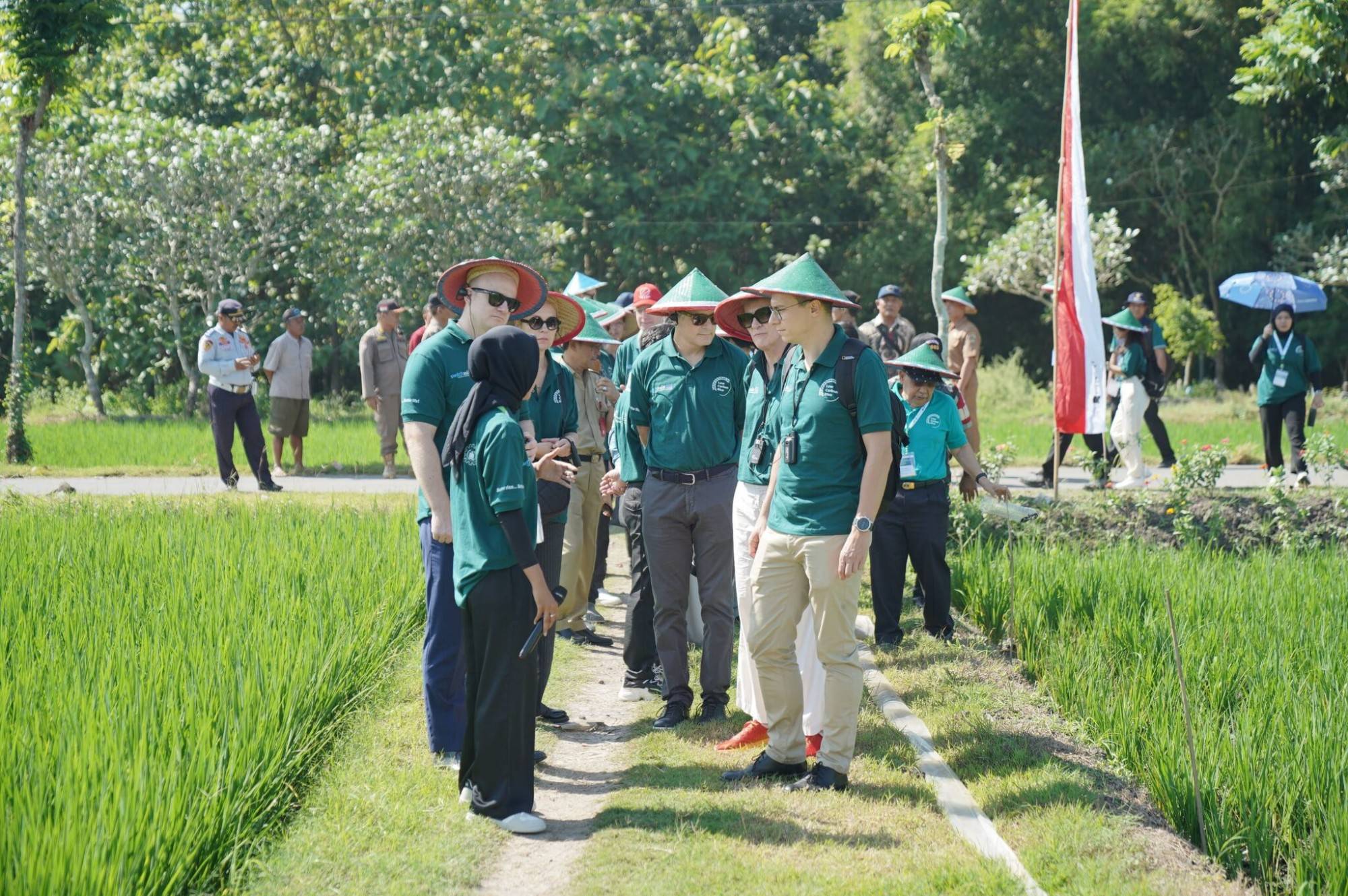
On 17-18 November 2025, Preferred by Nature, implementer of the EU SWITCH-Asia Low Carbon Rice project, has hosted the International Sustainable Rice Forum (ISRF) in Jakarta. The forum aims to drive the transformation toward more environmentally friendly rice farming practices, support farmers’ livelihoods, and expand market access for sustainable and low-carbon rice.
Conventional farming practices are still widely applied around the world and have significant environmental impacts. According to the World Resources Institute, rice cultivation produces 1.0 gigaton of carbon dioxide equivalent (GtCO2e) in global greenhouse gas emissions, contributing to the climate crisis.[1] This is largely due to unsustainable practices such as inefficient irrigation and excessive use of agrochemicals. As rice remains one of the world’s staple foods, transforming agricultural systems has become an urgent need to mitigate climate change and strengthen food security.
This international forum is an initiative by Preferred by Nature, in collaboration with the Sustainable Rice Platform (SRP), Rikolto, and the International Rice Research Institute (IRRI). With the theme “Low Carbon Rice. High Global Impact,” the forum underscored the important message that efforts to reduce emissions in the rice sector not only impact the environment but also affect food security, farmer prosperity, and the accessibility of partnerships for industry players.
ISRF 2025 officially opened with keynote speeches from the Coordinating Minister for Food Affairs, DR. (HC) Zulkifli Hasan S.E., M.M.; European Union Ambassador to Indonesia and Brunei Darussalam, H.E. Denis Chaibi; and Preferred by Nature’s Executive Director, Peter Feilberg.
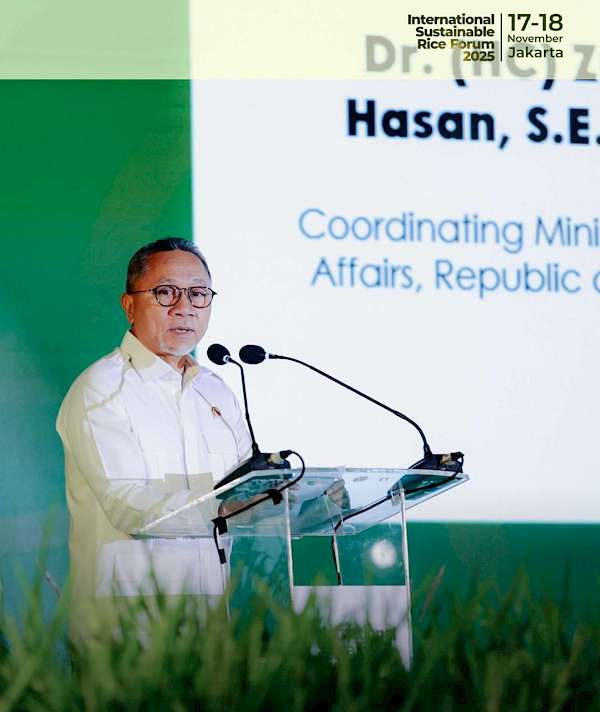
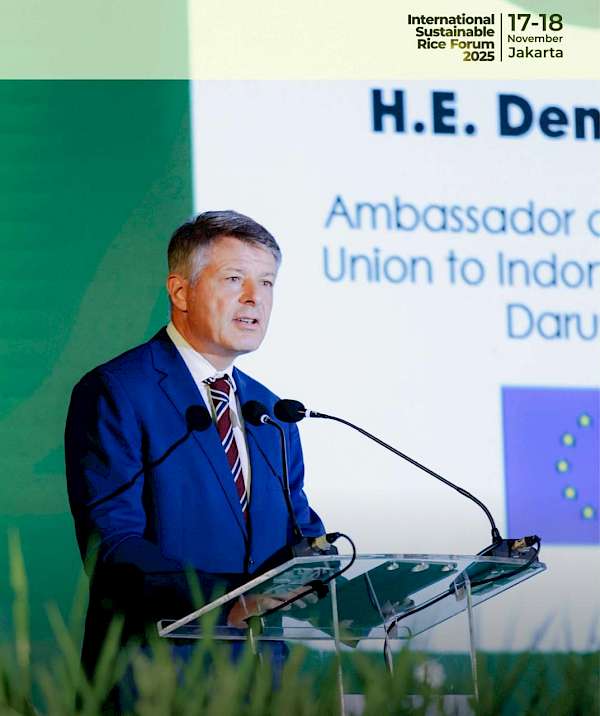
The Coordinating Minister for Food Affairs, Zulkifli Hasan, stated, “The Government of Indonesia reaffirms its commitment to strengthening food security and sovereignty through more productive, sustainable, and climate-resilient production of rice, corn, and protein. In the next 1–5 years, Indonesia will massively develop its agricultural sector, from superior varieties to mechanization and new technologies through collaboration with various stakeholders, including international partners. The goal is clear: ensuring nutritious and sustainable food for all Indonesians.”
Aligned with these national policy directions, international support and collaboration are becoming key factors in accelerating the transformation of Indonesia’s food system.
The European Union Ambassador to Indonesia and Brunei Darussalam, H.E. Denis Chaibi, added, “The European Union is committed to being a reliable partner for Indonesia in ensuring more sustainable and efficient rice production. Through the EU-funded SWITCH-Asia programme, we promote greener practices, strengthen regional value chains, and support community economic empowerment in line with the EU Global Gateway strategy. With the right collaboration, we can build a more resilient and sustainable food system for people across the world.”
Strategic Collaboration Among Global Rice Sector Players
Leaders across the global rice sector, ranging from policymakers, value chain actors like farmers and millers, to research institutions and international donors, attended and spoke at this two-day forum. Participants convened to share innovations, solutions, and policy directions for sustainable rice production practices in various countries, including Indonesia.
Peter Feilberg, Executive Director of Preferred by Nature, explained, “Rice may represent our greatest opportunity for positive change. We already have the knowledge, which means the solutions are clearer. What we need now is to bridge science, policy, and on-the-ground practice to ensure transformation truly happens. That is why we invite all stakeholders to move together — to build a more resilient rice value chain, healthier soils, and a more stable climate.”
In line with the theme, various topics were discussed, including how the rice sector can play a major role in climate change mitigation, strengthening global food security, and expanding market access for sustainable agricultural products. Prominent figures at both global and national levels participated in discussions, including:
- Ajit Radakrishnan, Senior Specialist, World Bank - 2030 Water Resources Group
- Beau Damen – Natural Resources Officer – Climate Change & Climate Finance, Food and Agriculture Organization of the United Nations (FAO)
- Dr. Yvonne Pinto – Executive Director, International Rice Research Institute (IRRI)
- Jens Soth – Executive Director, Sustainable Rice Platform (SRP)
The speakers joined interactive panel discussions and breakout sessions addressing crucial issues such as the opportunities and challenges of sustainable rice production in Asia and beyond; low-carbon farming practices and market access; the role of digital tools, finance, and partnerships in scaling impact; and policy pathways to align food security, farmer livelihoods, and the climate agenda. Furthermore, the forum served as a platform for stakeholders to discuss green finance, the integration of national food policies, and the implementation of sustainability standards that can meet global market demands.
Low Carbon Rice: From Indonesia Towards Systemic Transformation
With its strategic position as one of the world's largest rice producers, Indonesia plays a crucial role in determining the future direction of the global sustainable agricultural system transformation. Indonesia is the main hub for the EU SWITCH-Asia Low Carbon Rice Project initiative, aimed at promoting sustainable farming practices. Over the past four years, the project has built active engagement among farmers, government representatives, and private sector players.
Focusing on five districts across Central and East Java, the project has achieved the following:
- Supported 67 small-scale rice mills in switching from diesel to electric machines, reducing operational costs
- Established partnerships with over 2,650 farmers across an area of 1,037 hectares as part of an initial partnership toward sustainable rice production
- Facilitated the introduction of sustainable rice in the domestic market, connecting farmers and millers with restaurants and institutional buyers
- Strengthened the policy framework through the formation of the Sustainable Rice Platform (SRP) National Working Group and the development of the SRP National Interpretation Guidelines for Indonesia
- Developed sustainable rice production practices that positively correlate with the Indonesian government's efforts to achieve sustainable food self-sufficiency
Sutarto Alimoeso, Chairman of PERPADI (Indonesian Rice Millers Association), added, "Rice millers also play a crucial role in the sustainable agriculture chain. One of our contributions is the transition from diesel-fueled milling machines to electric milling machines. The impact following this transition is that it helps cut operational costs by up to 40% and reduce carbon emissions by about 15%. We view this step as a tangible manifestation of the transformation towards a low-carbon rice production system. With policy support and cross-sector partnerships, we are confident that this practice can be expanded to more regions."
These initiatives demonstrate the tangible impact of collaboration promoted through ISRF 2025—showing how innovation, partnership, and sustainability-driven policies can work together to strengthen food resilience while reducing environmental impacts. This forum marks an important step toward resilient food systems and the expansion of climate-friendly practices across Indonesia’s rice sector.
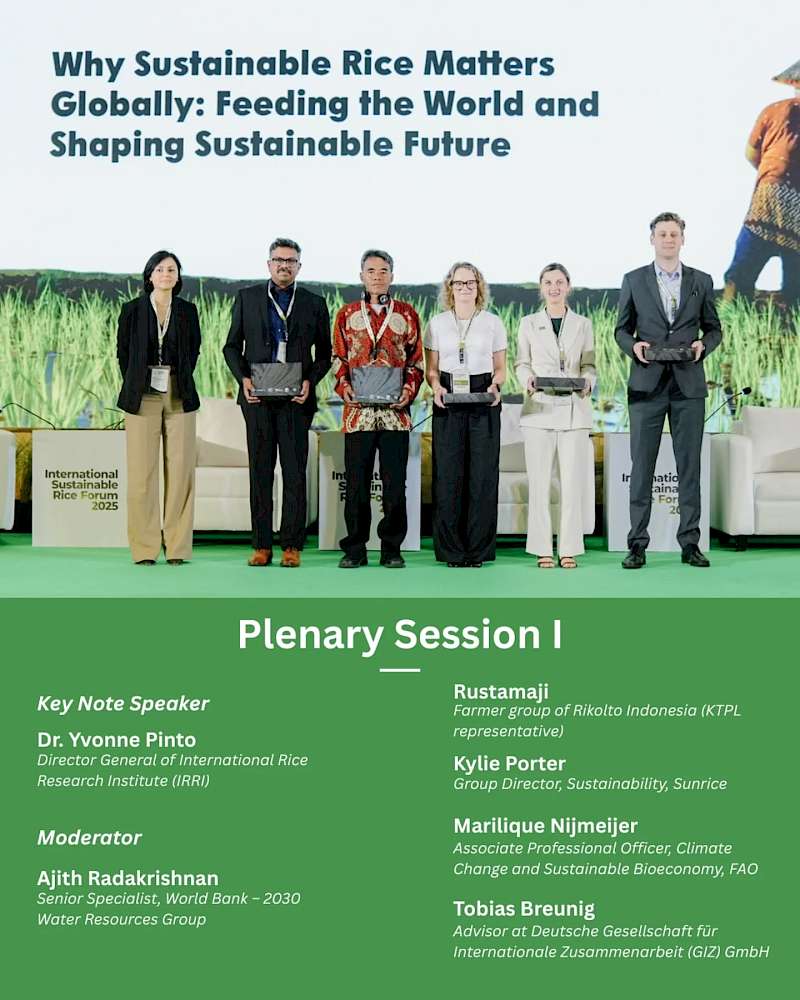
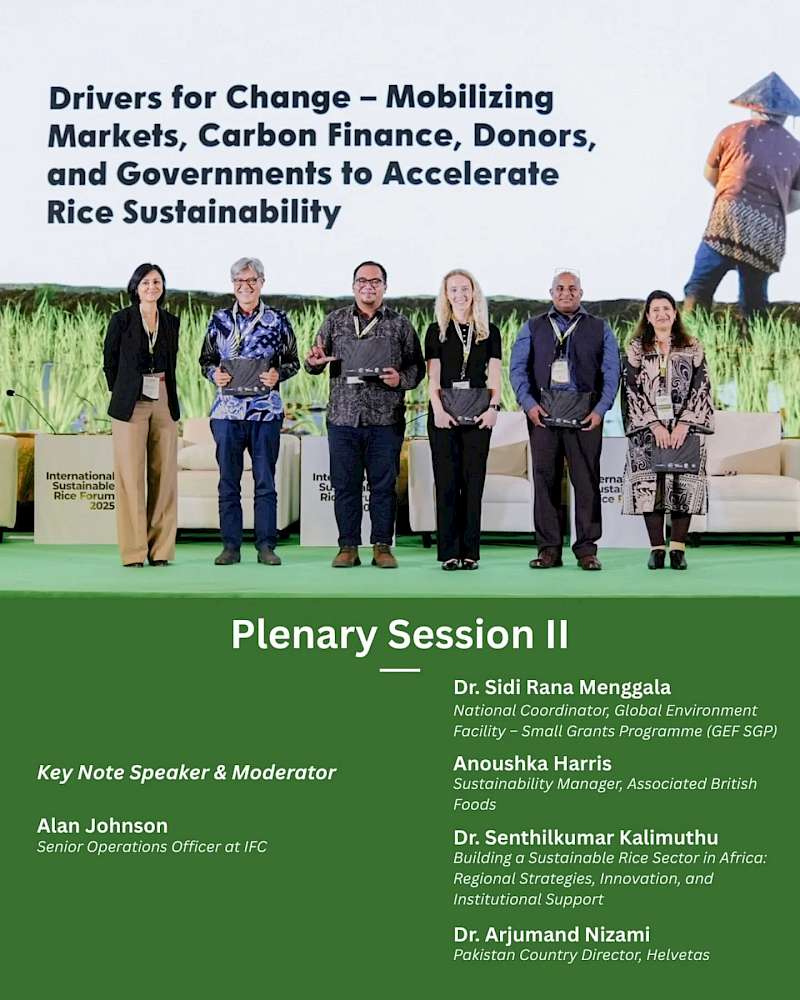
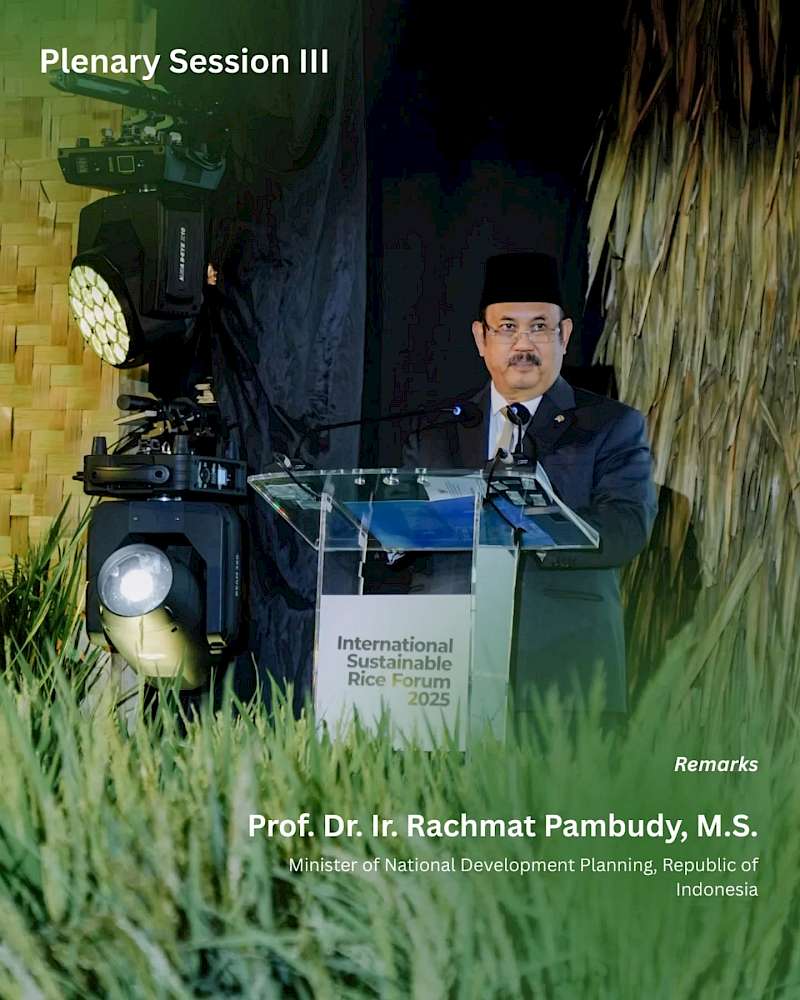

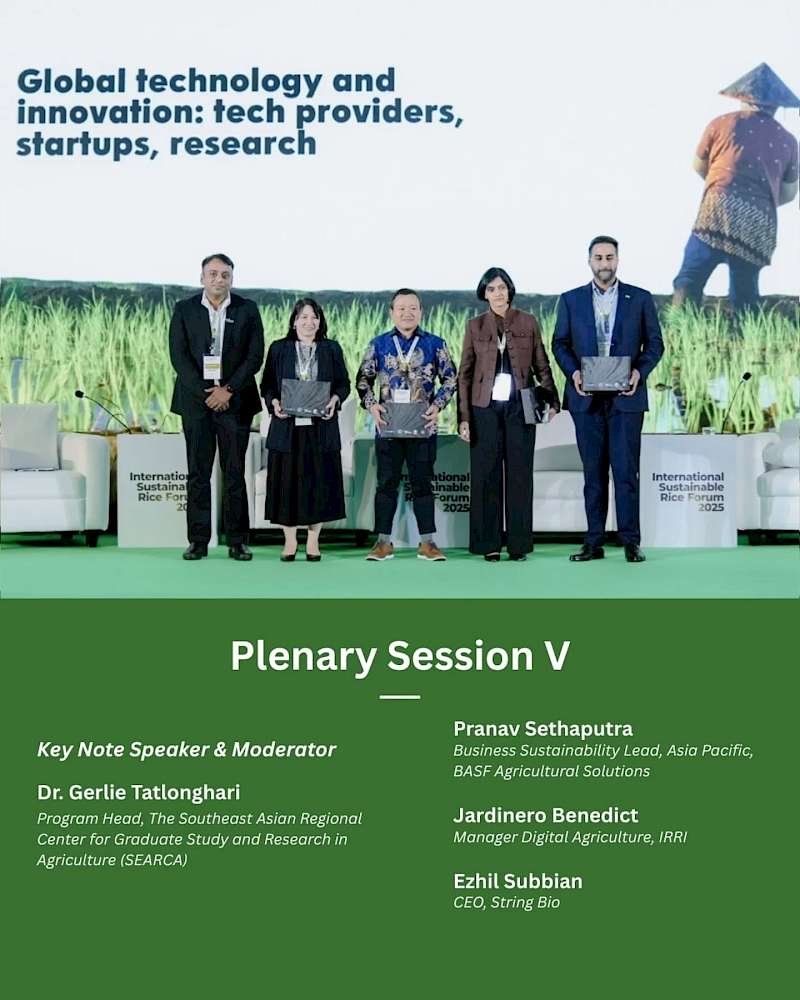
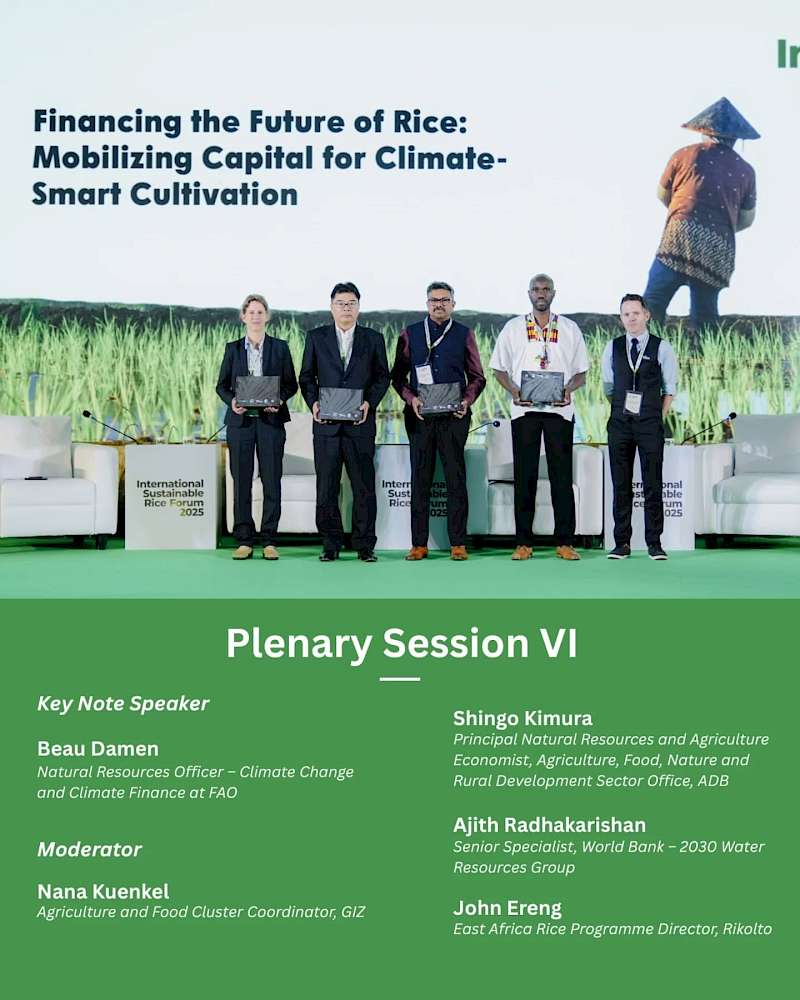
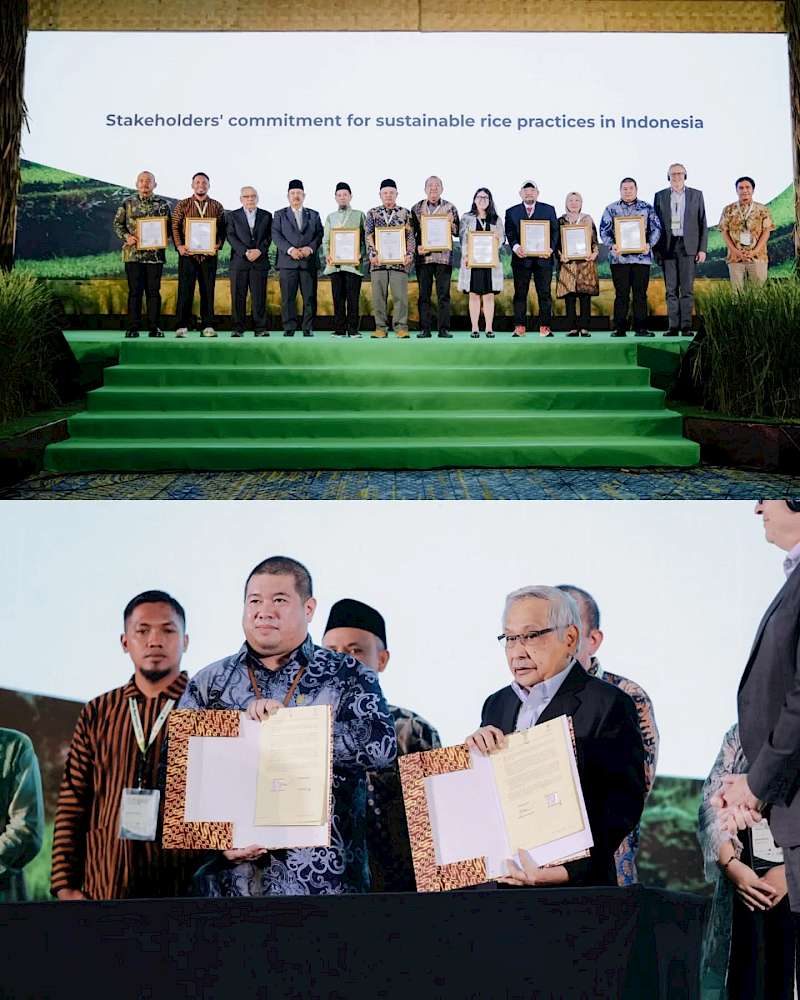
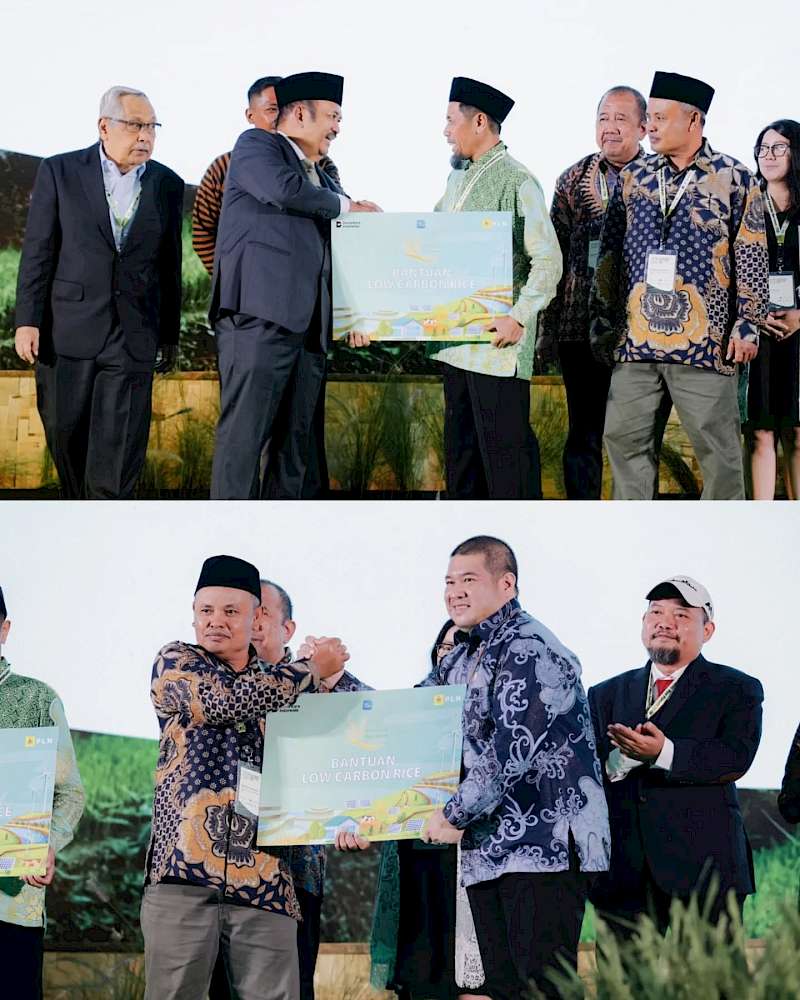
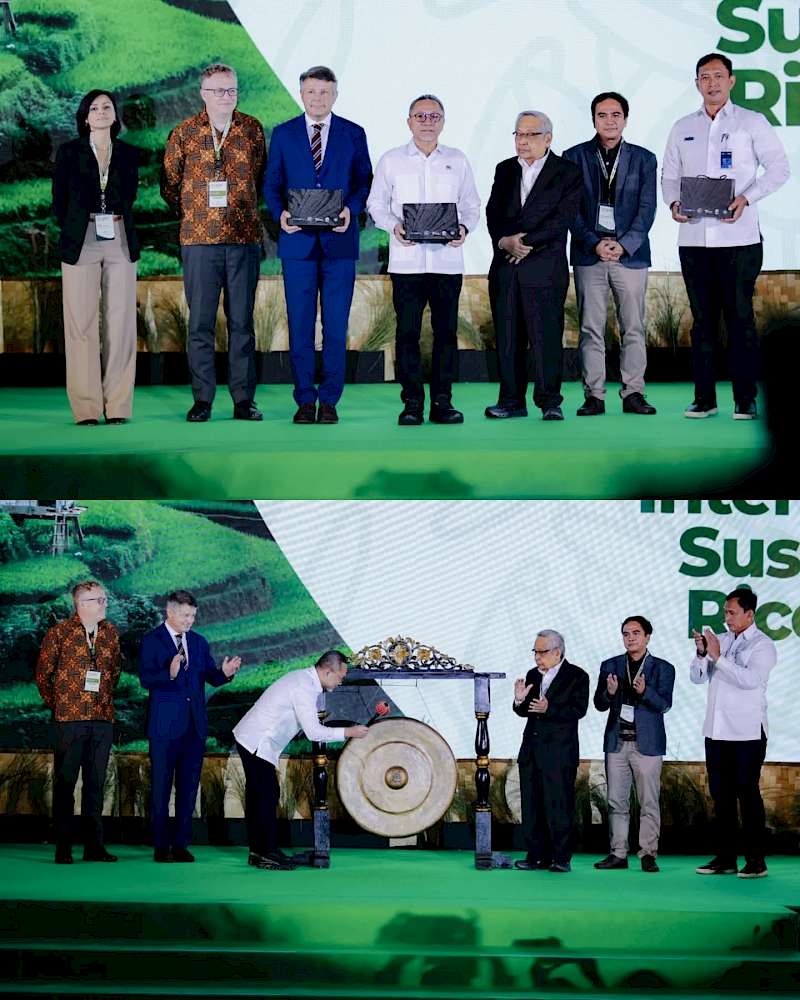
[1] World Resources Institute, ClimateWorks Foundation, dan Climate Action Tracker. (2023). State of Climate Action 2023. https://climateactiontracker.org/documents/1179/State_of_Climate_Action_2023_-_November_2023.pdf


